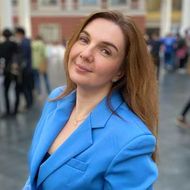From Chelyabinsk to Krasnodar: 56 Postdocs From Across Russia Join HSE University This Year
A total of 56 early-career researchers will join HSE University in Moscow and St Petersburg in the 2022/2023 academic year as part of the university’s Russian Postdoctoral Fellowship Programme. Some are participating in the programme for the first time, while others are returning for their second year. HSE University in Moscow has welcomed 29 new researchers to its departments.
The new arrivals have come to HSE University from across the country, from Vladivostok and Chelyabinsk to Krasnodar and Kazan. On September 20, they took a tour of the Pokrovka campus and the Durasov House. The postdocs learned how to use the university’s electronic resources and attended a lecture by Media Practices Centre Director Gleb Cherkasov on media direction for researchers.
Postdocs—postdoctoral students—are researchers who have earned a PhD or defended their doctoral dissertation and who now want to build an academic career. Their main goal is to immerse themselves fully in research work.
The HSE University Russian Postdoctoral Fellowship Programme is open to researchers aged 39 and under. Participants have the opportunity to realise their research potential, develop new topics for their own projects, and gain experience working in leading research teams.
One of HSE University’s priority tasks under the Development Programme for the Period until 2030 is to conduct world-class research in relation to global challenges and national interests. These researchers, who are coming to HSE University for the fifth time under the Russian Postdoctoral Fellowship Programme, become important members of research teams at the university’s campuses.
Olga Zgirovskaya
Postdoc Olga Zgirovskaya is starting her work at the Laboratory of Linguistic Conflict Resolution Studies and Contemporary Communicative Practices of the HSE University Faculty of Humanities. She will also teach speech etiquette to students of the Bachelor’s in Advertising and Public Relations of the Faculty of Creative Industries. ‘This is my first time within these walls. I am interested in how different eras, history and modernity, are organically linked here,’ she says. ‘The orientation events were very useful and helped me figure out where I will need to put extra effort in. I am comfortable and I like everything here.’
Sergey Gavrilov
Sergey Gavrilov works on problems of higher engineering education at the HSE University Institute of Education. ‘Everyone here is eager to do important things. They are motivated, which means the atmosphere is comfortable and lively,’ he explains. ‘We study the functioning of higher education as a social institution. I want our system to become better so that the people who enter it gain important and positive experience. Such changes can be achieved through research and analysis.’
Stanislav Beletsky
Stanislav Beletsky spent several years living in Tanzania, where he taught Russian and learned the local languages. He now works at the HSE University School of Philological Studies. He and his colleagues are involved in a project on speech practices in which they study major social spheres from a communication perspective. One such sphere is safety. ‘If five years ago, this would have referred to terrorism, extremism, and ways of preventing them, today, we have decided to focus on the COVID-19 pandemic,’ he explains. ‘This unexpected threat is now no longer as severe, and we have an opportunity to limit our object of study to a specific time frame.’
On September 21, the young researchers met with HSE University First Vice Rector Vadim Radaev, Vice Rector Dmitry Dagaev, and Coordinator of the Russian Postdoctoral Fellowship Programme Yulia Falkovich.

Yulia Falkovich
I am glad that we now have the opportunity to organise in-person events. They allow us to develop and strengthen the Russian postdoc community at HSE University and to encourage the participants to actively integrate into their new academic environment. This year, we held a two-day adaptation programme to give the postdocs a chance to get to know each other, make new friends, and learn more about the opportunities available to HSE University staff.
See also:
HSE University Welcomes a New Group of Postdocs
This autumn, 55 early-career researchers will start working at HSE University's campuses in Moscow, St. Petersburg, Nizhny Novgorod, and Perm. All of them have undergone a rigorous selection process and aim to make significant progress in both science and personal development during their participation in the Russian Postdoctoral Fellowship Programme. This year, in addition to PhDs who are Russian citizens, HSE University welcomes their colleagues from Poland, Kazakhstan, and India who have earned their academic degrees from Russian universities. On September 17-18, orientation events were held for them at HSE University.


